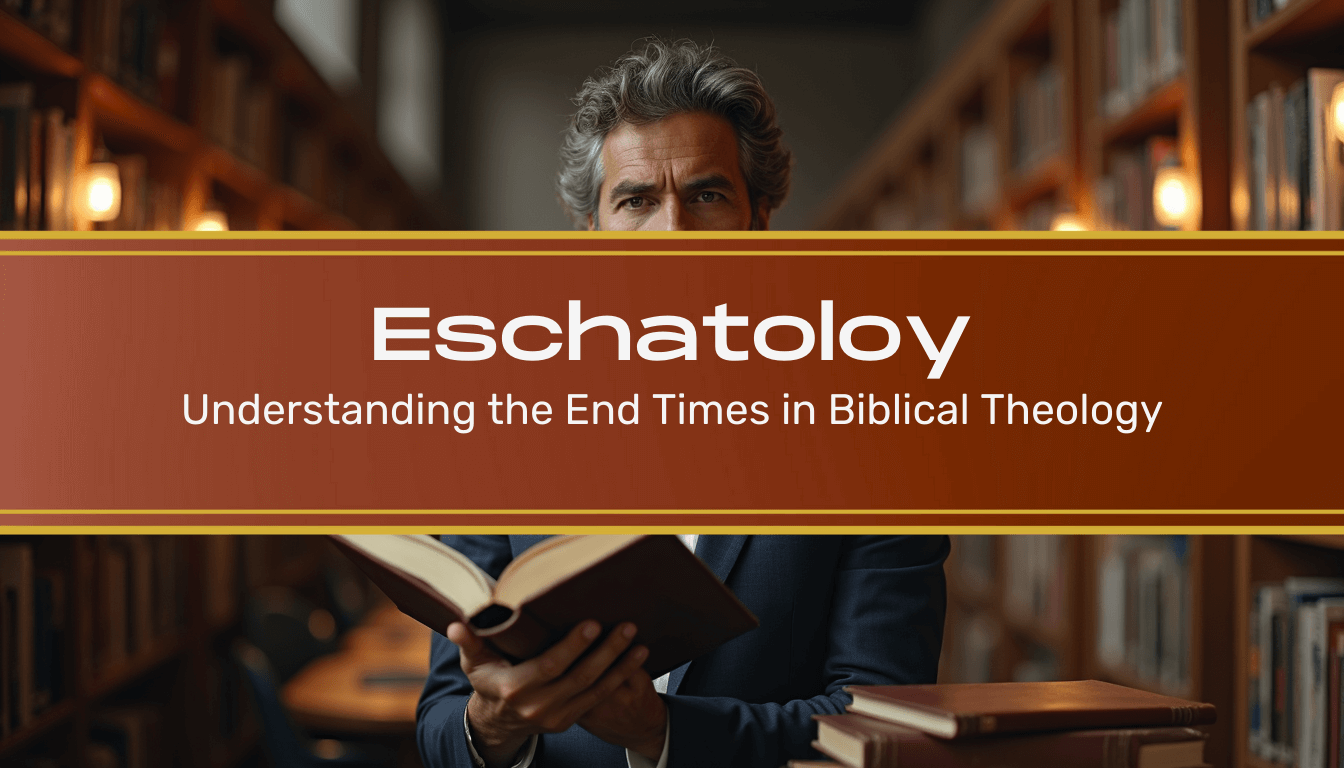
The Reliability of the Bible
Why Scripture Stands When Everything Else Falls
When Scholars Attack the Foundation
The question of the reliability of the Bible has never been more urgent. We live in an age where biblical scholarship has become a contact sport, and the Bible is taking hits from every direction. Popular authors like Bart Ehrman fill lecture halls explaining how the Bible is full of errors, contradictions, and later additions. Documentary filmmakers produce slick presentations about how the canon was assembled by power-hungry church officials. Internet atheists gleefully point to manuscript variants as proof that we can't trust anything Scripture says.
Meanwhile, many Christians sit in the pews completely unprepared for these challenges. They know John 3:16 but can't explain why we have four Gospels instead of one. They believe the Bible is God's Word but can't articulate why when their college professor explains how it's really just a collection of ancient myths compiled by committee.
Here's the reality: the Bible is the most scrutinized, analyzed, and attacked book in human history. And after two millennia of intense examination, it remains standing. Not because scholars have been easy on it, but because the evidence for its reliability is overwhelming. The same critical methods that have been used to attack Scripture have actually ended up confirming its trustworthiness—much to the chagrin of those who hoped to demolish it.
The question isn't whether the Bible can withstand scholarly scrutiny—it already has. The question is whether you're willing to examine the evidence honestly, even if it challenges your assumptions about ancient texts and divine revelation.
Why Biblical Reliability Isn't Just Academic
Some people treat questions about biblical reliability like debates about ancient history—interesting to scholars but irrelevant to real life. That's like treating the question of whether your parachute is reliable as a matter of casual curiosity while you're falling from 10,000 feet.
It Determines the Foundation of Your Faith
Christianity isn't based on good feelings, moral principles, or philosophical speculation. It's based on historical claims about what God did in space and time. If those claims aren't reliable, then Christianity isn't just wrong—it's a cruel joke played on billions of people throughout history.
The Bible claims that God spoke, that Jesus lived and died and rose again, that specific events happened at specific times in specific places. These aren't metaphorical truths or spiritual insights—they're historical claims that can be investigated, verified, or falsified.
It Affects How You Handle Life's Hardest Questions
When tragedy strikes, when relationships fall apart, when you're facing your own mortality, you need more than inspirational quotes and positive thinking. You need truth that can bear the weight of real suffering and real questions.
If the Bible is reliable, then its promises about God's character, His purposes in suffering, and His ultimate victory over death can sustain you through anything. If it's not reliable, then you're left with nothing but human wisdom and wishful thinking.
It Shapes Your Understanding of Truth Itself
In a postmodern culture that treats truth as subjective and relative, the Bible's claim to objective, universal truth is either the most important message in the world or the most dangerous delusion. There's no middle ground.
Sharp Edge: The same academics who demand absolute proof for every biblical claim will build entire careers on theories about ancient texts that have a fraction of the manuscript evidence. Apparently, skepticism is a one-way street that only runs toward the Bible.
The Manuscript Evidence: Numbers Don't Lie
When it comes to ancient documents, the Bible doesn't just win the reliability contest—it laps the competition multiple times. The manuscript evidence for Scripture is so overwhelming that it's almost embarrassing to compare it to other ancient texts.
The Sheer Volume
We have over 5,800 Greek manuscripts of the New Testament, plus thousands more in Latin, Coptic, Syriac, and other languages. When you include all the manuscript evidence, we're talking about over 25,000 ancient copies or fragments of biblical texts.
Compare this to other ancient works:
Homer's Iliad: About 650 manuscripts (and that's considered excellent for ancient literature)
Caesar's Gallic Wars: 10 manuscripts
Tacitus' Annals: 20 manuscripts
Plato's works: 7 manuscripts
If you applied the same standards of skepticism to other ancient texts that critics apply to the Bible, you'd have to throw out virtually everything we know about the ancient world.
The Time Gap
The gap between the original writings and our earliest manuscripts is remarkably small for ancient literature. We have New Testament fragments dating to within 50-100 years of the original writings, with complete manuscripts from the 4th century.
For comparison:
Homer's Iliad: 500-year gap
Caesar's Gallic Wars: 1,000-year gap
Tacitus' Annals: 1,000-year gap
Plato's works: 1,300-year gap
The shorter the time gap, the less opportunity for errors, additions, or alterations to creep into the text. By this standard, the New Testament is in a class by itself.
The Textual Accuracy
Here's where it gets really impressive: despite having thousands of manuscripts copied by hand over centuries, the biblical texts show remarkable consistency. Textual critics estimate that the New Testament is over 99% accurate, with most variants being minor spelling differences or word order changes that don't affect meaning.
The few significant variants that do exist are well-known and clearly identified in modern translations. There are no lost books, no hidden gospels, and no secret teachings that were suppressed by church authorities. What we have is what the early church had.
The Scribal Process
The care with which biblical manuscripts were copied is unprecedented in the ancient world. Jewish scribes, in particular, developed elaborate safeguards to ensure accuracy:
They counted every letter in each book
They identified the middle letter of each book
They had complex rules about spacing, materials, and copying procedures
A single error could result in the entire manuscript being destroyed
This wasn't casual copying—it was a sacred trust that scribes took with deadly seriousness.
Archaeological Confirmation: When Shovels Vindicate Scripture
For over a century, archaeologists have been digging up the ancient world, and their discoveries have consistently confirmed biblical accounts. This is particularly significant because archaeology provides independent verification of biblical claims.
The Dead Sea Scrolls: Game Over for Critics
The discovery of the Dead Sea Scrolls in 1947 was a watershed moment for biblical reliability. These scrolls, dating from 300 BC to 70 AD, included copies of every Old Testament book except Esther.
The significance? When scholars compared these ancient texts to the medieval manuscripts we'd been using, they found virtually no differences. The text of Isaiah, for example, was 95% identical to manuscripts that were 1,000 years younger. The 5% of differences were mostly spelling variations and minor word changes that didn't affect meaning.
This discovery demolished the theory that the Old Testament had been significantly altered over time. The scribes had done their job with remarkable precision.
Historical Figures Confirmed
For years, critics claimed that many biblical figures were fictional. Then archaeologists started finding evidence:
King David: The Tel Dan Stele mentions the "House of David"
Pontius Pilate: The Pilate Stone confirms his existence and title
Caiaphas: His ossuary (bone box) was discovered in Jerusalem
King Belshazzar: Babylonian records confirm his existence and role
Each discovery vindicated biblical history and embarrassed the critics who had dismissed these figures as legendary.
Geographical and Cultural Accuracy
The Bible demonstrates remarkable accuracy in its descriptions of ancient geography, customs, and political situations. Luke's Gospel, in particular, shows precise knowledge of first-century Palestine, including:
Accurate titles for local officials
Correct geographical relationships
Proper understanding of Jewish and Roman customs
Precise knowledge of political situations
This level of accuracy is exactly what you'd expect from eyewitness accounts, not from later legendary developments.
Sharp Edge: Every time archaeologists find something that confirms the Bible, it gets a brief mention in academic journals and then disappears from popular discussion. But let them find one pottery shard that might possibly contradict Scripture, and it's front-page news for months. Funny how that works.
Fulfilled Prophecy: The Ultimate Authentication
If you want to prove that a book is divinely inspired, fulfilled prophecy is your smoking gun. And the Bible is full of prophecies that were written centuries before their fulfillment with stunning accuracy.
Messianic Prophecies: The Mathematical Impossibility
The Old Testament contains over 300 prophecies about the coming Messiah, all fulfilled in Jesus Christ. The mathematical probability of one person fulfilling even a fraction of these prophecies by chance is astronomically small.
Consider just eight prophecies:
Born in Bethlehem (Micah 5:2)
Born of a virgin (Isaiah 7:14)
From the line of David (Jeremiah 23:5)
Betrayed for 30 pieces of silver (Zechariah 11:12)
Crucified with criminals (Isaiah 53:12)
Lots cast for his clothing (Psalm 22:18)
No bones broken (Psalm 34:20)
Pierced (Zechariah 12:10)
The probability of one person fulfilling just these eight prophecies by chance is 1 in 10^17. That's like covering the entire state of Texas with silver dollars two feet deep, marking one coin, and having a blindfolded person pick out that exact coin on the first try.
Historical Prophecies: Predicting the Unpredictable
The Bible also contains prophecies about historical events that were fulfilled with remarkable precision:
Daniel's Prophecy of the Four Kingdoms: Written in the 6th century BC, Daniel predicted the rise and fall of the Babylonian, Persian, Greek, and Roman empires with stunning accuracy.
Jesus' Prophecy of Jerusalem's Destruction: In Matthew 24, Jesus predicted that Jerusalem would be destroyed and the temple torn down. This was fulfilled in 70 AD when the Romans destroyed the city.
Ezekiel's Prophecy Against Tyre: Ezekiel predicted that the city of Tyre would be destroyed, its stones thrown into the sea, and the site scraped bare. This was fulfilled when Alexander the Great used the rubble of the old city to build a causeway to the island fortress.
Critics often try to dismiss these prophecies by claiming they were written after the events they predict. But this approach is circular reasoning—they assume the prophecies can't be genuine, so they must have been written later, which proves they can't be genuine.
Textual Criticism: Separating Wheat from Chaff
Modern textual criticism has given us sophisticated tools for analyzing ancient manuscripts and determining the original text. Rather than undermining biblical reliability, these tools have confirmed it.
The Science of Textual Criticism
Textual critics use several criteria to evaluate manuscript variants:
External Evidence: How old are the manuscripts? How geographically diverse? How reliable are the manuscript families?
Internal Evidence: Which reading best explains the others? Which fits the author's style and theology?
Intrinsic Probability: Which reading is most likely to be original based on the context and the author's known tendencies?
When these criteria are applied to the New Testament, the result is a text that we can be confident represents what the original authors wrote.
Dealing with Variants
Yes, there are variants among the manuscripts—about 400,000 of them. But this sounds more alarming than it actually is. Most variants are:
Spelling differences: Ancient Greek didn't have standardized spelling
Word order changes: Greek word order is more flexible than English
Synonyms: Using different words with the same meaning
Articles and conjunctions: Adding or omitting small words that don't affect meaning
The variants that actually affect meaning are rare, and none of them impact any major Christian doctrine. We know exactly where they are, and modern translations note them clearly.
The Ehrman Challenge
Bart Ehrman has made a career out of highlighting textual variants and claiming they undermine biblical reliability. But Ehrman's own teacher, Bruce Metzger, pointed out that the variants Ehrman emphasizes don't actually change any fundamental Christian beliefs.
Ehrman's approach is like examining a newspaper and concluding it's unreliable because some copies have typos. The presence of minor variants actually confirms that we have access to the original text—we can see where changes occurred and correct for them.
The Canon Question: How We Got Our Bible
One of the most common attacks on biblical reliability focuses on the formation of the canon. Critics claim that the books of the Bible were chosen arbitrarily by church councils or that other equally valid books were excluded for political reasons.
The Reality of Canon Formation
The biblical canon wasn't created by church councils—it was recognized by them. The books that became Scripture had already been accepted and used by Christian communities for centuries before any official recognition.
The criteria for canonicity were:
Apostolic authorship or connection: Written by apostles or their close associates
Orthodox content: Consistent with established Christian teaching
Universal acceptance: Recognized and used by churches across the known world
Divine inspiration: Demonstrated spiritual power and authority
These weren't arbitrary standards imposed by power-hungry bishops—they were practical criteria that emerged from the church's experience with these texts.
The Gnostic Gospels Myth
Popular books and movies have promoted the idea that other "gospels" were suppressed by the early church. But the so-called Gnostic gospels were written much later (2nd-4th centuries), by different authors, with completely different theological content.
These texts weren't suppressed because they threatened church power—they were rejected because they were obviously not apostolic and contradicted the established Christian message.
Sharp Edge: The same people who claim the Bible's canon was determined by political power will uncritically accept the authority of modern academic committees who decide which theories get published and which scholars get tenure. Apparently, political influence only corrupts ancient decisions, not modern ones.
Historical Reliability: When History Confirms Scripture
The Bible isn't just a religious text—it's also a historical document that makes specific claims about people, places, and events. And the historical evidence consistently supports these claims.
Luke the Historian
Luke's Gospel and Acts demonstrate remarkable historical accuracy. Sir William Ramsay, initially a skeptic, spent years trying to disprove Luke's historical claims. Instead, he became convinced of Luke's reliability, writing:
"Luke is a historian of the first rank; not merely are his statements of fact trustworthy, he is possessed of the true historic sense."
Luke gets details right that only someone with intimate knowledge of first-century Palestine would know:
Correct titles for local officials
Accurate geographical relationships
Proper understanding of Jewish and Roman customs
Precise knowledge of political situations
Archaeological Confirmations
Archaeology has consistently confirmed biblical accounts:
The Pool of Bethesda: Once thought to be fictional, it was discovered in Jerusalem exactly as John described it.
The Pool of Siloam: Mentioned in John 9, it was discovered in 2004 in the exact location described.
Nazareth: Critics once claimed Nazareth didn't exist in Jesus' time. Archaeological evidence has confirmed a first-century settlement there.
Capernaum: The town where Jesus based his ministry has been extensively excavated, confirming the Gospel accounts.
The Hittites: Once dismissed as biblical fiction, the Hittite empire is now known to have been a major ancient power.
External Historical Confirmation
Non-Christian sources confirm key biblical claims:
Josephus: The Jewish historian mentions Jesus, John the Baptist, and James the brother of Jesus.
Tacitus: The Roman historian confirms Jesus' crucifixion under Pontius Pilate.
Pliny the Younger: Describes early Christian worship practices that align with New Testament accounts.
The Babylonian Talmud: Contains references to Jesus that, while hostile, confirm his existence and crucifixion.
Addressing the Critics: Real Scholarship vs. Sensationalism
The most vocal critics of biblical reliability often misrepresent the evidence or make claims that go far beyond what the data actually supports.
The Ehrman Phenomenon
Bart Ehrman has become the poster child for biblical criticism, but his popular books often overstate his case. Ehrman's scholarly work is more nuanced than his popular presentations suggest.
For example, Ehrman acknowledges that we can reconstruct the original New Testament text with a high degree of confidence. But in his popular books, he emphasizes uncertainty and doubt. This isn't dishonest—it's just the difference between scholarly precision and popular sensationalism.
The Documentary Hypothesis
The Documentary Hypothesis claims that the Pentateuch was compiled from multiple sources (J, E, D, P) rather than written by Moses. While this theory is popular in academic circles, it's based more on philosophical assumptions than hard evidence.
Recent scholarship has challenged many of the hypothesis's key claims:
Archaeological evidence supports earlier dating for many texts
The supposed contradictions often reflect different perspectives, not different sources
The literary unity of the texts is stronger than critics claimed
The Jesus Seminar
The Jesus Seminar, which claimed that Jesus said very little of what the Gospels attribute to him, has been thoroughly discredited by mainstream scholarship. Their methodology was flawed, their assumptions were biased, and their conclusions were predetermined.
Even non-Christian scholars have criticized the Jesus Seminar for its lack of scholarly rigor and its sensationalistic approach to Gospel criticism.
Translation Issues: Lost in Translation?
One common attack on biblical reliability focuses on translation issues. Critics claim that the Bible has been so corrupted through translation that we can't know what it originally said.
The Reality of Translation
While translation always involves interpretation, the claim that the Bible has been corrupted through translation is simply false. Modern translations are based on the original Hebrew and Greek texts, not on translations of translations.
Multiple Translation Approaches
Different translation philosophies serve different purposes:
Formal Equivalence (ESV, NASB): Prioritizes accuracy to the original language structure
Dynamic Equivalence (NIV, NLT): Prioritizes clarity in the target language
Paraphrase (The Message, The Living Bible): Prioritizes contemporary expression
Each approach has strengths and weaknesses, but all are based on the same reliable manuscript tradition.
The Dead Sea Scrolls Vindication
The Dead Sea Scrolls provided a crucial test of transmission accuracy. When scholars compared the Isaiah scroll from Qumran (dating to around 100 BC) with the medieval Masoretic text (dating to around 1000 AD), they found 95% agreement across a 1,100-year span.
The 5% of differences were mostly spelling variations and minor word changes that didn't affect meaning. This demonstrated that the Hebrew text had been transmitted with remarkable accuracy over more than a millennium.
Prophecy and Prediction: The Supernatural Element
The Bible's prophetic accuracy provides evidence not just for its reliability, but for its divine inspiration. Human authors might get historical details right, but they can't predict the future with the precision we see in Scripture.
Daniel's Detailed Predictions
The book of Daniel contains prophecies so accurate that critics insist they must have been written after the events they predict. But this approach assumes that supernatural prediction is impossible—which begs the question.
Daniel predicted:
The succession of world empires (Babylon, Persia, Greece, Rome)
The division of Alexander's empire among his generals
Specific details about the conflicts between the Ptolemies and Seleucids
The persecution under Antiochus Epiphanes
The level of detail is so precise that it reads like a history book. Critics call this "prophecy after the fact," but the evidence for early dating is strong.
Jesus' Predictions
Jesus made specific predictions that were fulfilled within a generation:
The destruction of Jerusalem (Matthew 24:2)
The scattering of the disciples (Mark 14:27)
Peter's denial (Matthew 26:34)
His own death and resurrection (Mark 8:31)
These weren't vague predictions that could be interpreted multiple ways—they were specific claims about future events that came to pass exactly as predicted.
Sharp Edge: Critics will accept that ancient historians could accurately record events from decades earlier, but they refuse to believe that biblical authors could predict events decades in the future. Apparently, human memory works backward through time, but divine revelation doesn't work forward.
The Unity Argument: Forty Authors, One Message
One of the most remarkable features of the Bible is its unity. Written by approximately 40 authors over 1,500 years, across three continents and in three languages, it presents a coherent message about God's character and His plan for humanity.
Thematic Consistency
From Genesis to Revelation, the Bible maintains consistent themes:
God's holiness and justice
Human sinfulness and need for redemption
God's love and mercy
The promise of a Savior
The ultimate victory of good over evil
This consistency is remarkable given the diversity of authors, time periods, and cultural contexts.
Progressive Revelation
The Bible shows progressive revelation—later books build on and clarify earlier ones without contradicting them. The New Testament fulfills Old Testament promises and prophecies in ways that the original authors couldn't have planned or coordinated.
Literary Excellence
The Bible contains some of the finest literature ever written. The poetry of the Psalms, the wisdom of Proverbs, the drama of Job, and the narrative skill of the Gospel writers demonstrate literary excellence that transcends cultural and temporal boundaries.
This literary quality isn't accidental—it reflects the divine inspiration behind the human authors.
Contemporary Challenges: Postmodern Attacks on Truth
Modern challenges to biblical reliability often come not from new evidence, but from philosophical assumptions about the nature of truth and knowledge.
The Postmodern Challenge
Postmodernism claims that all texts are culturally conditioned and that objective meaning is impossible. From this perspective, asking whether the Bible is "reliable" is meaningless because all interpretation is subjective.
But postmodernism is self-refuting. If all interpretation is subjective, then the postmodern interpretation of texts is also subjective and has no special authority.
The Feminist Challenge
Some critics claim that the Bible is unreliable because it reflects patriarchal assumptions. But this confuses descriptive and prescriptive elements. The Bible describes ancient cultures (which were indeed patriarchal) while prescribing principles that actually elevated the status of women.
The Scientific Challenge
Some claim that scientific discoveries have made the Bible obsolete. But science and Scripture address different questions. Science tells us how the natural world works; Scripture tells us why it exists and what it means.
Moreover, many scientific discoveries have actually confirmed biblical claims about the universe having a beginning, the fine-tuning of natural laws, and the uniqueness of Earth's conditions for life.
Living with a Reliable Bible
The reliability of the Bible isn't just an academic question—it has profound implications for how we live.
Confidence in God's Promises
If the Bible is reliable, then we can trust its promises about forgiveness, eternal life, and God's love. We don't have to wonder whether these are just human hopes or wishful thinking—they're guaranteed by the character of the God who inspired Scripture.
Authority for Life Decisions
A reliable Bible provides authoritative guidance for life's most important decisions. We don't have to rely on cultural trends, personal feelings, or human wisdom—we have access to divine wisdom that transcends time and culture.
Hope in Suffering
When life falls apart, a reliable Bible offers hope that goes beyond human comfort. Its promises about God's sovereignty, His purposes in suffering, and His ultimate victory over evil can sustain us through anything.
Motivation for Mission
If the Bible is reliable, then its message about salvation through Christ is the most important news in the world. This motivates us to share the Gospel with urgency and confidence.
The Intellectual Honesty Test
Here's the challenge: are you willing to apply the same standards of evidence to the Bible that you apply to other ancient texts? Are you willing to follow the evidence wherever it leads, even if it challenges your assumptions about religion, morality, and meaning?
The evidence for biblical reliability is overwhelming. The manuscript evidence is unparalleled. The archaeological confirmations are consistent. The fulfilled prophecies are mathematically impossible to explain by chance. The historical accuracy is remarkable.
The question isn't whether the evidence exists—it does. The question is whether you're willing to accept it.
Sharp Edge: The same people who trust ancient historians like Herodotus and Thucydides based on a handful of manuscripts will reject the Bible despite having thousands of manuscripts. It's almost like their skepticism isn't really about evidence—it's about avoiding the implications of what the evidence points to.
We don’t sidestep hard topics. We face them with Scripture, honesty, and respect. Start by exploring our category pages—they’re practical and built to help you think biblically. If what you find is useful, take your time and drill down into the articles within each category. If you do, you’ll learn a lot—and you’ll be better equipped to live like Christ.
Evidence from cosmology, design, and morality that points to a Creator.
The historical evidence for Christianity's central claim.
How modern science points to a Designer behind the universe.
Examining the evidence for different views on origins.
Why suffering doesn't disprove God's existence.
Put This Into Practice
Research one manuscript discovery mentioned in this article and write a paragraph about its significance for biblical reliability.
Memorize 2 Timothy 3:16 and reflect on what it means for Scripture to be "God-breathed."
Choose one fulfilled prophecy and study both the original prediction and its historical fulfillment.
Conclusion
The reliability of the Bible isn't a matter of blind faith—it's a conclusion supported by overwhelming evidence. The manuscript evidence is unparalleled in the ancient world. Archaeological discoveries consistently confirm biblical accounts. Fulfilled prophecies demonstrate supernatural knowledge. Historical accuracy validates the Gospel narratives.
But the Bible's reliability isn't just about academic vindication—it's about life transformation. This isn't just an ancient text that happens to be historically accurate. It's the living Word of God that continues to change lives, challenge assumptions, and offer hope to a broken world.
The evidence is there for anyone willing to examine it honestly. The question isn't whether the Bible can be trusted—it's whether you're willing to trust it. Because if it's reliable (and the evidence says it is), then its message about sin, salvation, and eternal life isn't just interesting information—it's the most important truth you'll ever encounter.
The Bible has survived every attack, outlasted every empire, and transformed more lives than any other book in history. It's not going anywhere. The question is: what are you going to do with it?

Chris Daniel, just a servant of Christ calling others to be ready. Like the Bereans, I try to examine Scripture daily to see if what I hear is true. If you're struggling to live as we're called, you're still in the fight. Don't give up.
Category 2 - Christian Apologetics

Category 3 - Bible Study

Category 4 - Theology


"Most middle-class Americans tend to worship their work, work at their play, and play at their worship. As a result, their meanings and values are distorted. Their relationships disintegrate faster than they can keep them in repair. Their lifestyles resembles a cast of characters in search of a plot." - Gordon Dahl
"The Bible is a reliable collection of historical documents written down by eyewitnesses during the lifetime of other eyewitnesses that report supernatural events that took place in fulfillment of specific prophecies and claimed their writings were divine rather than human in origin."
- Dr. Voddie Baucham on 2 Peter 1





